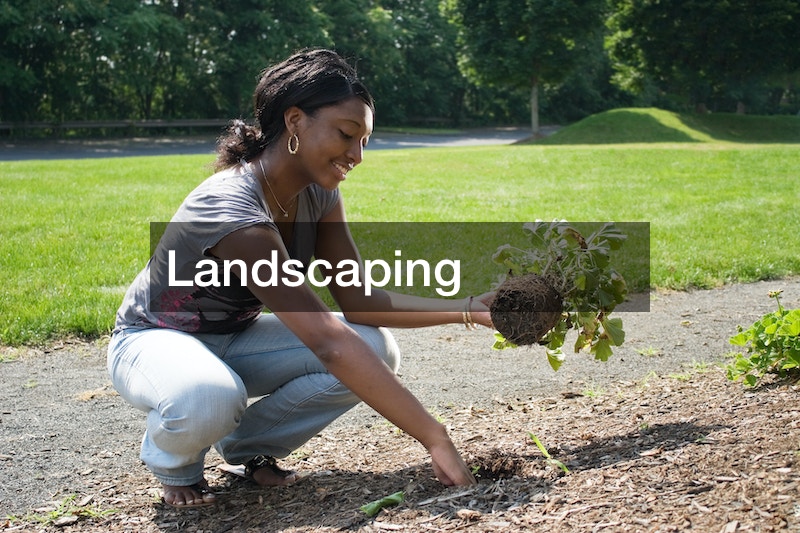Family planning is a critical aspect of healthcare that enables individuals and couples to make informed decisions about their reproductive health. It involves the use of various methods, such as birth control and fertility treatments, to prevent unintended pregnancies and plan for desired ones. However, many people lack access to accurate information and resources for family planning, making it essential to educate individuals about the available options and their benefits.
Education on Family Planning: What You Should Know 1: Understanding Family Planning Methods

Family planning methods include both natural and artificial methods. Natural methods include tracking a woman’s menstrual cycle, observing cervical mucus, and basal body temperature. Artificial methods include barrier methods, hormonal methods, intrauterine devices (IUDs), and sterilization. Each method has its advantages and disadvantages, and it is essential to consult with a family physician or healthcare provider to determine the best option for an individual’s specific needs.
It is important to note that while some methods, such as hormonal birth control, are highly effective in preventing pregnancy, they do not protect against sexually transmitted infections (STIs). The use of condoms, in addition to other methods, can provide added protection against STIs.
Education on Family Planning: What You Should Know 2: Resources for Family Planning
There are many resources available for individuals seeking information and assistance with family planning. Family physicians, womens health clinics, and fertility centers are excellent sources of information and can provide access to a variety of family planning methods, including birth control and fertility treatments. Health insurance plans may also cover the cost of certain family planning services, and there are many low-cost or free options for those without insurance.
Additionally, there are many online resources, such as the website of the National Institute of Child Health and Human Development, that provide accurate information about family planning methods and options.
Education on Family Planning: What You Should Know 3: Adoption and Family Planning

For individuals and couples who are unable to conceive or who wish to provide a loving home to a child in need, adoption can be a viable option for building a family. Adoption involves the legal transfer of parental rights from the biological parents to the adoptive parents.
Family lawyers and a child adoption attorney will specialize in the legal aspects of adoption and can provide guidance and assistance throughout the process. Additionally, there are many adoption agencies that can provide information and resources for individuals and couples considering adoption.
Family planning is just one aspect of overall healthcare, and individuals should also focus on maintaining their overall health and well-being. Regular check-ups with a family physician, dentist, vision care, dental care, and access to medical supplies are all important for maintaining good health. Dentists and dental care are also important for maintaining good oral health.
Education on Family Planning: What You Should Know 5: Importance of Access to Family Planning
Access to family planning is essential for individuals and couples to make informed decisions about their reproductive health. Without access to accurate information and resources, individuals may be at a higher risk for unintended pregnancies, which can have significant negative consequences for both the individuals and their families.
In addition, access to family planning can also improve overall health and well-being. For example, the use of hormonal birth control can regulate menstrual cycles, reduce the risk of certain types of cancer, and alleviate symptoms of conditions such as endometriosis.
However, access to family planning is not always equal. Certain groups, such as low-income individuals and people living in rural areas, may have limited access to information and resources. It is important to address these disparities and ensure that all individuals have access to the information and resources they need to make informed decisions about their reproductive health.
Education on Family Planning: What You Should Know 6: Importance of Family Planning Education
Education on family planning is crucial for individuals and couples to make informed decisions about their reproductive health. Without education, individuals may not know about the different options available to them or how to use them effectively. This can lead to unintended pregnancies and poor health outcomes.
Family planning education should be comprehensive and include information on all available options, as well as the potential risks and benefits of each method. It should also be inclusive and address the unique needs and concerns of different groups, such as LGBTQ+ individuals, people living with disabilities, and individuals from diverse cultural backgrounds.
Moreover, family planning education should be accessible to all, including those with low literacy levels, non-native speakers, or those with visual or hearing impairments.
Education on Family Planning: What You Should Know 7: Addressing Stigma and Barriers to Family Planning

Despite the importance of family planning, there is still a significant amount of stigma and barriers that prevent individuals from accessing the information and resources they need. For example, some individuals may feel embarrassed to talk about their reproductive health or may face discrimination from healthcare providers. Additionally, some religious or cultural beliefs may stigmatize certain family planning methods or discourage individuals from seeking information and resources.
To address these barriers, it is essential to create a supportive and inclusive environment where individuals feel comfortable discussing their reproductive health. This can be achieved through education, awareness campaigns, and the provision of culturally sensitive and respectful healthcare services.
Education on Family Planning: What You Should Know 8: The Role of Men in Family Planning
Family planning is often thought of as a women’s issue, but men also play a critical role in the decision-making process and the use of family planning methods. Men can help to support their partners in accessing information and resources, as well as using family planning methods effectively.
In addition, men can also take responsibility for their own reproductive health by using methods such as condoms to prevent unintended pregnancies and STIs. Moreover, it is important to educate men on the importance of family planning and the role they can play in the decision-making process.
Education on Family Planning: What You Should Know 9: The Impact of Family Planning on Population and Economic Growth
Family planning plays a critical role in population and economic growth. With access to family planning, individuals and couples can make informed decisions about their reproductive health and plan for the number of children they desire. This can help to reduce the rate of population growth and ease the strain on resources such as food, water, and housing.
In addition, family planning can also have a positive impact on economic growth. By reducing the rate of population growth, it can help to create a more stable and sustainable population, which can in turn lead to increased economic growth and development. Furthermore, when women have access to family planning, they are more likely to participate in the workforce, which can also contribute to economic growth.
Education on Family Planning: What You Should Know 10: The Link Between Family Planning and Gender Equality
Family planning is closely linked to gender equality, as it enables women to make informed decisions about their reproductive health and plan for the number of children they desire. This can help to empower women and improve their overall health and well-being.
Additionally, family planning can also contribute to gender equality by enabling women to participate more fully in the workforce and pursue educational and career opportunities. When women have control over their reproductive health, they are more likely to have the freedom and resources to pursue their goals and aspirations.
Furthermore, family planning can also help to reduce the gender gap in education and employment, as it enables girls to complete their education and take up job opportunities without interruptions caused by unintended pregnancies. It can help by offering a consistent medical supply.
Education on Family Planning: What You Should Know 11: The Link between Family Planning and Sustainable Development
Family planning is a key component of sustainable development, as it enables individuals and couples to make informed decisions about their reproductive health and plan for the number of children they desire. This can help to reduce the rate of population growth, ease the strain on resources, and promote economic growth and development.
In addition, family planning can also contribute to sustainable development by reducing maternal and infant mortality rates, improving overall health and well-being, and empowering women to participate more fully in the workforce and pursue educational and career opportunities.
Furthermore, family planning can also help to achieve other sustainable development goals, such as reducing poverty and inequality, promoting gender equality, and ensuring access to education and healthcare for all.
Family planning plays a critical role in population and economic growth, gender equality, and sustainable development. By providing individuals and couples with access to accurate information and resources, family planning can help to empower individuals, improve overall health and well-being, and contribute to a more stable and sustainable population and economy.
Education on Family Planning: What You Should Know 12: The Relationship between Family Planning and Climate Change
Climate change and family planning are closely linked as population growth is one of the main drivers of climate change, and family planning can help to reduce the rate of population growth. With access to family planning, individuals and couples can make informed decisions about their reproductive health and plan for the number of children they desire, which can help to ease the strain on resources and reduce the overall carbon footprint.
In addition, family planning can also contribute to climate change mitigation by enabling women to participate more fully in the workforce, which can help to increase economic growth and development. Furthermore, family planning can also help to reduce poverty and inequality, which are closely linked to climate change.
Education on Family Planning: What You Should Know 13: The Link between Family Planning and Gender-based Violence
Family planning is closely linked to gender-based violence, as it enables women to make informed decisions about their reproductive health and plan for the number of children they desire. This can help to empower women and reduce their vulnerability to gender-based violence.
Additionally, family planning can also contribute to the prevention of gender-based violence by enabling women to participate more fully in the workforce and pursue educational and career opportunities. When women have control over their reproductive health, they are more likely to have the freedom and resources to escape from violent relationships.
Furthermore, family planning can also help to reduce the gender gap in education and employment, which can also help to prevent gender-based violence.
Education on Family Planning: What You Should Know 14: The Link between Family Planning and Maternal and Child Health
Family planning is closely linked to maternal and child health, as it enables individuals and couples to make informed decisions about their reproductive health and plan for the number of children they desire. This can help to reduce the rate of unintended pregnancies, which can in turn reduce maternal and infant mortality rates.
In addition, family planning can also contribute to maternal and child health by enabling women to participate more fully in the workforce, which can help to increase economic growth and development. Furthermore, family planning can also help to reduce poverty and inequality, which are closely linked to maternal and child health.
Education on Family Planning: What You Should Know 15: The Role of Community-Based Organizations in Family Planning
Community-based organizations (CBOs) play a critical role in promoting family planning and providing access to accurate information and resources. CBOs are often well-connected to their communities and can provide information and resources in a way that is sensitive to the cultural and social context of their communities.
CBOs can also provide support for individuals and couples as they make decisions about their reproductive health and can also help to raise awareness about the importance of family planning. Furthermore, CBOs can also help to reduce stigma and barriers to family planning by providing culturally sensitive and respectful services.
Community-based organizations play a critical role in promoting family planning and providing access to accurate information and resources. By providing information and resources in a way that is sensitive to the cultural and social context of their communities, CBOs can help to empower individuals and couples as they make decisions about their reproductive health, and also help to raise awareness about the importance of family planning.
In conclusion, education on family planning is essential for individuals and couples to make informed decisions about their reproductive health. Access to accurate information and resources is critical for preventing unintended pregnancies and ensuring overall health and well-being. Addressing stigma and barriers to family planning, and involving men in the decision-making process, can help to ensure that everyone has the ability to make informed choices about their reproductive health.



















